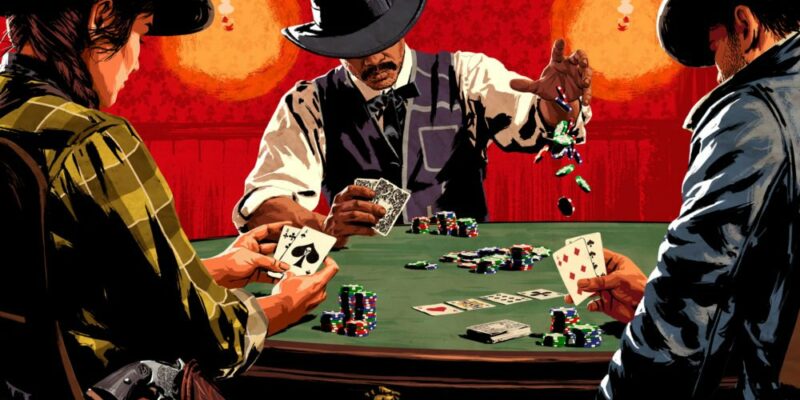Gambling has been a part of American culture for as long as anybody can remember. From wagering on horse racing to blackjack and poker, gambling has always been a popular source of entertainment in the United States.
Nonetheless, the history of gambling in America is not without controversy. Various states and local governments have outlawed or regulated gaming in some circumstances. In other cases, communities have welcomed it as a vital economic driver.
This article will provide a glimpse of the history of gambling in the United States, and how it has evolved over time. Read on to learn more!
Precolonial America and the Colonial Era
Before European settlers arrived in North America, Native Americans were known to participate in gambling as part of their tribal festivities and ceremonies. The most popular game one that involved dice and a basket or bowl.
European colonists carried their gambling customs with them when they established what is now the United States of America. The earliest known instance of gambling in the U.S. dates to 1655, when immigrants in Jamestown, Virginia, organized a lottery to raise money for their colony.
Ever since, gambling spread throughout the nation and has been embraced by numerous cultures and groups. The most popular gambling sports in the 16th and 17th centuries were wrestling matches, running races, bull and bear-baiting, and cockfighting.
The 18th Century
Early in the 18th Century, gambling in America had become so common that it became a financial burden on the nation. The wealthy were betting away their assets, possessions, and even titles.
It became necessary to avoid the economic devastation brought on by the huge title and land transfers taking place to cover the wealthy’s gambling debts. In response, the reigning monarch, Queen Anne, created a statute that made it impossible to legally enforce huge gambling debts.
Towards the mid-18th Century, a wave of evangelical Christianity, commonly known as ‘the Great Awakening,” surged across America. Believers considered gambling as evil and dangerous to society and used religion to effect social reform.
The 19th Century
At the start of the 19th Century, gambling was accepted in America so long as it did not disrupt the social order. Gambling in public places was prohibited in nearly all southern states by the 1830s. However, there were exceptions to this regulation for “respectable gentlemen.”
New Orleans then emerged as a gambling hub, and by 1830. While the licensing act was revoked several years later, casino-style gambling became popular in the state, famously extending to the famed Mississippi River riverboats.
Unfortunately, Andrew Jackson, the current president of the U.S., was focused on social issues and the country’s morality. So, this triggered another wave of Christian evangelism that brought about the end of legal gambling.
By the mid-19th Century, only Kentucky and Missouri states had legal lotteries remaining. Browse Here for the best Missouri casinos. Nevertheless, after the Civil War, the ban on lotteries was reversed because states needed to raise funds to restore the economic damage.
The 20th Century
The 1930s saw a revival of gambling interests, leading to the legalization of charitable gaming and horse racing in numerous states. Many current casino games were also developed and popularized among the multicultural population during this time.
Nevada slowly developed into a gambling mecca after the Second World War. The state started collecting gaming taxes, making gambling a key revenue source. Plus, casinos created lucrative employment opportunities.
Outside Nevada, other states, including New Jersey, Georgia, Illinois, Mississippi, Michigan, Colorado, Indiana, and Lowa, introduced legal gambling.
Transition to Modern Times
The advent of the digital era in the mid-1990s caused a huge transformation in the gambling industry in the U.S. By the end of the 20th Century, there were nearly 700 gambling sites online, the majority headquartered in the Caribbean.
As new operators entered the market in the 2000s, bonuses and offers changed, games improved, and loyalty or comp schemes were implemented. With this quick evolution came an increase in the number of gamblers, and sites constantly updating features to keep players.
Despite the growth in online gambling, American legislators were for long reluctant to regulate online gambling. But this changed when the U.S. Supreme Court repealed the Professional and Amateur Sports Protection Act (PASPA), and the Department of Justice determined that the Wire Act does not affect legal online betting.
Legislators have dramatically shifted their positions over the past 2 years, and online gambling is now legal in 24 states. Hawaii and Utah are the only states that are still convinced that gambling of any form is illegal.
Wrapping Up
Gambling in the U.S. has a rich and complicated history. Numerous events, such as the re-legalization in Nevada and the Supreme Court’s decision in 2018, helped shape the business into what it is today.
As more states legalize gambling, the industry’s revenue will likely rise significantly. But one thing is certain: gambling is becoming more accepted and popular.














